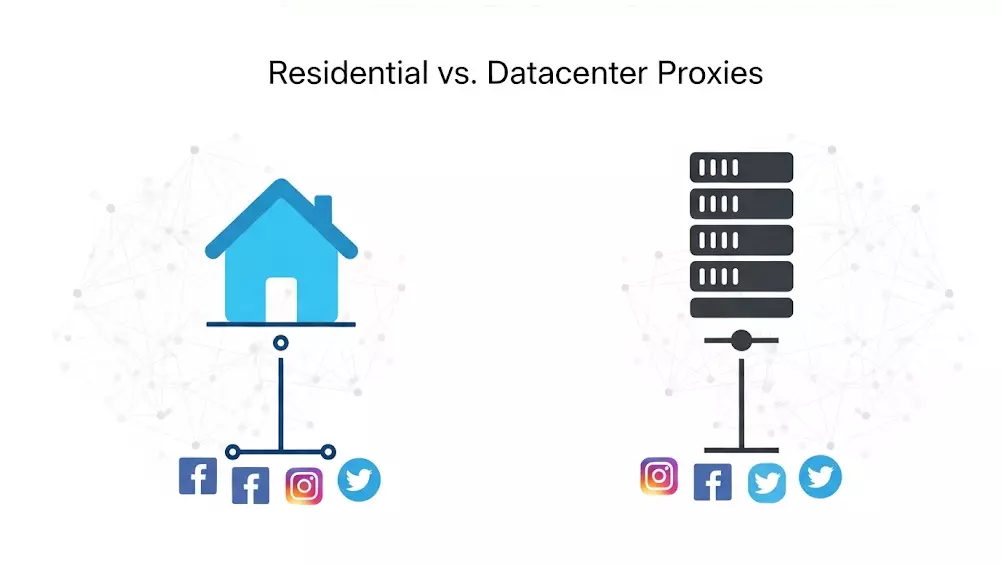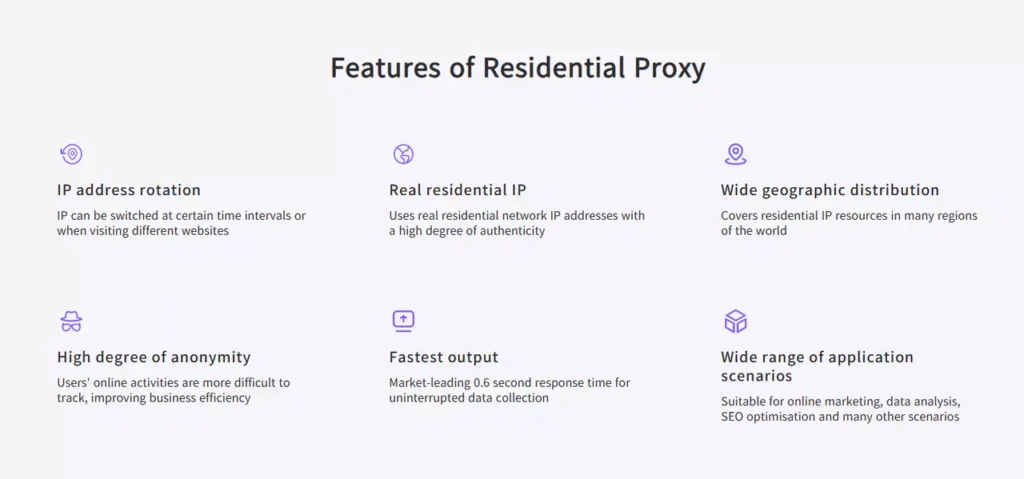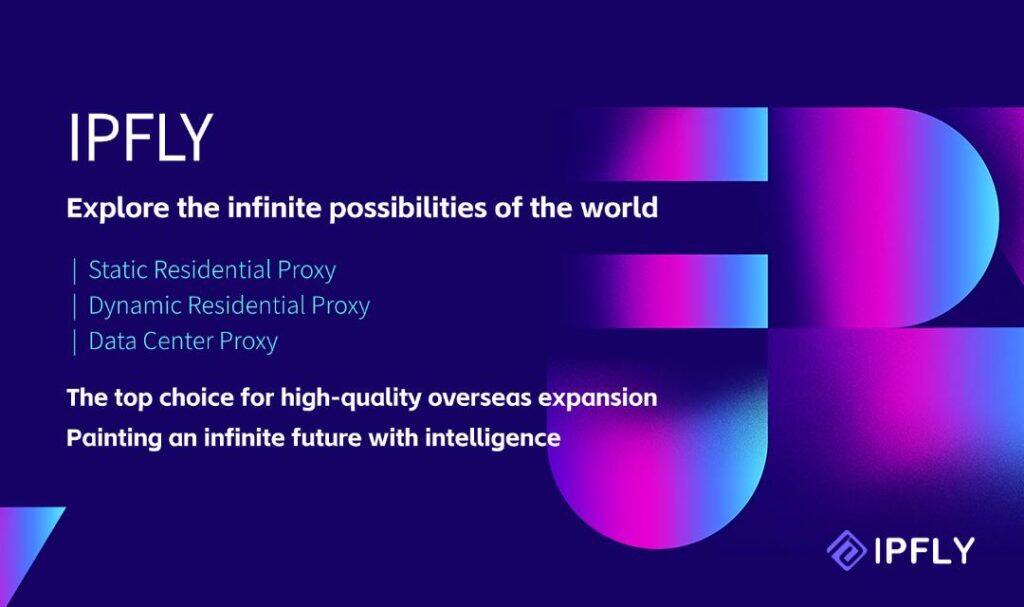Managing multiple social media accounts or running large-scale campaigns requires reliable and efficient proxy solutions. Social media platforms actively monitor for suspicious behavior, and accounts can be flagged, restricted, or banned if unusual activity is detected. Two of the most commonly used proxy types for social media management are residential proxies and datacenter proxies. Choosing the right type can significantly affect account safety, automation efficiency, and access to geo-restricted content.
This guide explores the differences, advantages, limitations, and practical use cases of residential and datacenter social media proxies, helping you make an informed decision.

What Are Residential and Datacenter Proxies?
Residential proxies use IP addresses assigned by Internet Service Providers (ISPs) to real households. These IPs appear as legitimate users to websites, making them highly trusted by social media platforms. They are ideal for multi-account management, automation, and scraping tasks where detection avoidance is critical. Providers like IPFLY offer residential proxies with global coverage, helping users maintain multiple accounts safely.
Datacenter proxies, in contrast, originate from servers in data centers rather than ISPs. While they are faster and more affordable, they are easier for social platforms to detect, especially when multiple accounts use the same IP pool. Datacenter proxies are best for lower-risk tasks, like testing campaigns or bulk data extraction.
Key Differences Between Residential and Datacenter Proxies
| Feature | Residential Proxies | Datacenter Proxies |
| IP Source | Real ISPs | Data centers |
| Detection Risk | Low | Higher |
| Speed | Moderate | High |
| Cost | Higher | Lower |
| Best Use Cases | Multi-account management, automation, scraping | High-speed testing, SEO monitoring, ad verification |
Advantages of Residential Proxies for Social Media

- Lower Detection Risk – Social media platforms view these IPs as those of regular users, reducing the likelihood of account bans.
- Better for Multi-Account Management – Each account can use a unique residential IP address, preventing account linking.
- Access Geo-Restricted Content – Residential IPs from specific regions enable market research and localized campaigns.
- Reliable Automation – Residential proxies support automation tools for posting, liking, commenting, and other tasks without triggering security alerts. Providers like IPFLY offer high-quality residential IPs for these use cases.
Use Cases: Managing multiple Instagram, TikTok, or Facebook accounts, running automation campaigns, and scraping social media data safely.
Advantages of Datacenter Proxies for Social Media
- Faster Speeds – Ideal for high-volume or time-sensitive tasks.
- Lower Cost – More affordable for bulk operations.
- Easy Scalability – Quick deployment in large quantities for tasks with low detection risk.
- Suitable for Testing and Monitoring – Great for ad verification, SEO tracking, and temporary account access.
Use Cases: Quick data extraction, testing campaigns across regions, and monitoring competitor content efficiently.
Practical Considerations
- Residential Proxies: Provide higher trust and reduced risk of detection, but can be more expensive and slightly slower depending on network conditions.
- Datacenter Proxies: Offer speed and affordability, but are more likely to be detected and blocked on social platforms if overused.
Factors to consider when choosing between the two:
- Number of accounts – Residential IPs for multi-account management.
- Budget – Datacenter proxies for cost-sensitive tasks.
- Task type – Residential proxies for automation and scraping; datacenter proxies for testing or monitoring.
Using residential or datacenter proxies from providers such as IPFLY ensures safe operations, reliable connections, and global coverage, which is essential for running large-scale social media campaigns.
Best Practices for Using Social Media Proxies
- Assign one proxy per account – Avoid linking multiple accounts to the same IP.
- Use residential or mobile proxies for sensitive accounts – Minimize detection risk.
- Rotate IPs regularly during automation – Reduce suspicious activity patterns.
- Simulate human behavior – Avoid high-speed repetitive actions that trigger platform security.
- Monitor account activity – Ensure proxies are functioning correctly and accounts remain secure.
Conclusion

Choosing between residential and datacenter proxies depends on your goals, budget, and tolerance for detection risk. Residential proxies provide higher trust, lower detection risk, and are ideal for multi-account management and automation. Datacenter proxies offer speed, cost-effectiveness, and are suitable for lower-risk testing and monitoring tasks.
By using reliable proxies from providers like IPFLY, marketers and businesses can manage multiple social media accounts, scrape data efficiently, and access geo-restricted content safely while scaling campaigns effectively.
👉 Join the IPFLY Telegram community for updates on proxy solutions, social media management strategies, and multi-account automation.


